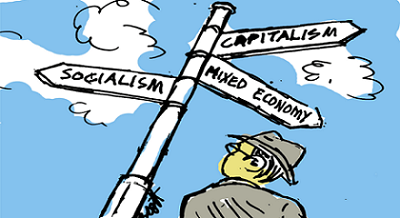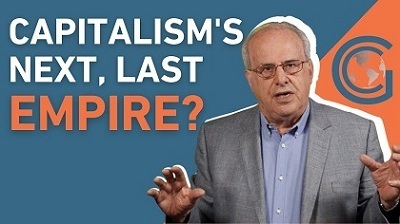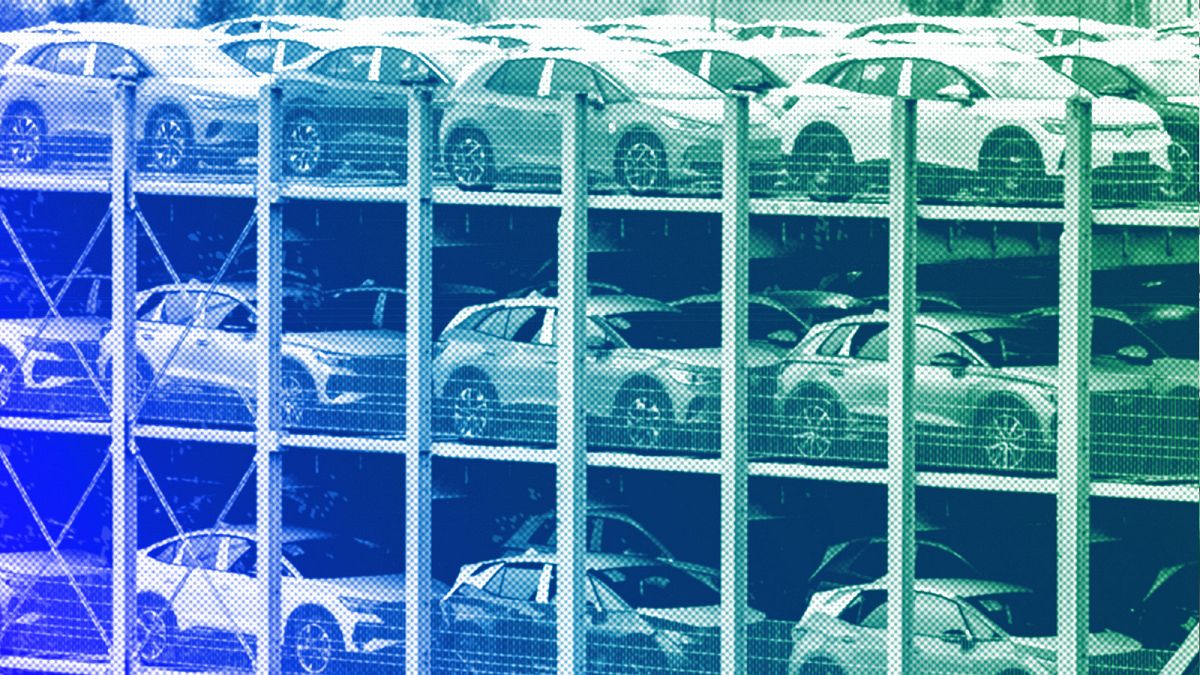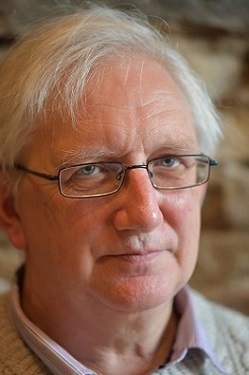https://www.nationofchange.org/2023/10/25/why-capitalism-cannot-finally-repress-socialism/
Why capitalism cannot finally repress socialism
By Richard D. Wolff -October 25, 2023
..."Over the last two centuries, as #socialism spread from Western Europe across the globe, it interacted with very diverse #economic, #political, and #cultural conditions. Those interactions yielded multiple, different interpretations of socialism. For some, it was an evolving critique of #capitalism, especially its injustices, inequalities, and cyclical instability. For others, it became the ongoing construction of an #alternative economic system. More broadly, millions were brought to socialisms that aimed to change basic social institutions (family, city, government) that capitalism had subordinated to its needs. The different, multiple socialisms debated and influenced one another, accelerating change within them all.
...
Such a socialist system entails the continuance of traditional capitalism: enterprises owned and operated mostly by private capitalists, individuals, or corporate groups. What it adds that makes it socialist is a government (often but not necessarily run by a socialist party) that closely regulates and supervises markets and enterprises.
Such socialist governments aim to moderate key effects of private capitalism including its very unequal distributions of income and wealth, extreme business cycles, and unaffordable access by the general population to healthcare, education, and much else. Progressive taxation typifies socialist governments’ means of intervening in otherwise private capitalism. Moderate socialisms of this sort are found in many European nations, in the programs of many socialist parties around the world, and in the statements and writings of socialist individuals.
...
People have often organized their collaborative production and distribution of goods and services as self-conscious communities within larger societies. Sometimes such productive communities were organized hierarchically with governing groups (councils of elders, chiefs, kings, lords, and masters) paralleling how they organized residential communities. At other times, they organized productive communities more horizontally as democratic cooperatives. A rapidly rising concept of socialism in the 21st century differs from the three basic models discussed above in its focus on and advocacy for the organization of workplaces as democratic, productive communities functioning within society.
...
Among critical socialists’ analyses, some eventually reached the conclusion that previous socialisms focused too much on the macro-level of capitalist society and too little on the micro-level. Socialism cannot only be about the balance between private and state enterprises, about “free” versus state-regulated markets, and about market versus state-planned distributions of resources and products. That limitation can and should be broken. Failures at the macro level had causes at a micro level that socialists had too often neglected.
When socialisms left the internal organizations of production and distribution enterprises inherited from capitalism largely unchanged, they made a major error. They left in place human relationships that undermined chances for enterprises in socialist economies to reach socialism’s goals. A truly democratic society cannot be built on a foundation of productive enterprises whose internal structure is the opposite of democratic. The employer-employee capitalist model is that foundational opposite. Capitalist employers are neither chosen by nor genuinely accountable to their employees. In worker cooperatives, by contrast, the employer-employee division is ended and replaced by a democratic community. The employees are likewise and collectively the employer. Their one-person-one-vote decisions, by the majority, govern what gets produced: how, where, and when. They likewise decide democratically what to do with the fruits of their collective labor, how enterprise revenues will be distributed among individual workers, and as investment funds and reserve funds."...






 @Sylvia J -
@Sylvia J - 








